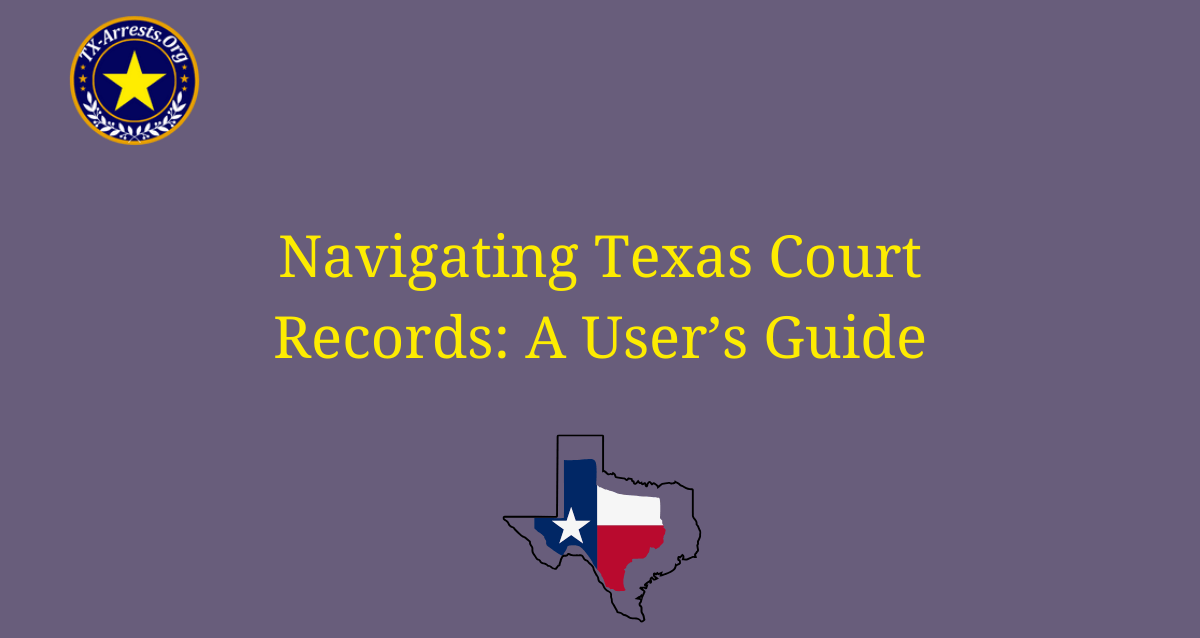Navigating Texas Court Records: A User’s Guide

In a society where access to information is crucial, navigating court records can be both empowering and daunting. Whether you’re conducting legal research, background checks, or simply satisfying your curiosity, understanding how to navigate Texas court records is essential. This user’s guide aims to demystify the process and equip you with the necessary tools to explore the vast repository of legal information available to the public.
Understanding Texas Court System
Texas boasts a diverse and complex court system, comprising various types of courts catering to different legal matters. From municipal courts handling traffic violations to the Supreme Court overseeing appeals, understanding the hierarchy and functions of these courts is fundamental to accessing relevant records.
Accessing Court Records Online
With the advent of technology, accessing court records online has become increasingly convenient. Several platforms offer access to Texas court records, albeit with certain registration requirements and fees. Familiarizing yourself with these platforms and their functionalities is crucial for efficient record retrieval.
Public Access Terminals (PATs)
For those without internet access or prefer a more traditional approach, Public Access Terminals (PATs) are available in courthouses across Texas. These terminals provide on-site access to court records, allowing users to conduct searches and print relevant documents.
Types of Court Records Available
Texas court records encompass a wide array of legal proceedings, including civil, criminal, family, and probate matters. Each category holds valuable information pertinent to different aspects of legal research and investigation.
Searching Court Records
Effective searching of court records requires familiarity with basic and advanced search techniques. Knowing how to construct precise queries and utilize filters can significantly streamline the search process and yield more accurate results.
Interpreting Court Records
Navigating through court records involves deciphering legal terminology and identifying key information relevant to your inquiry. While some records may seem daunting at first glance, patience and attention to detail are crucial for extracting valuable insights.
Privacy and Security Concerns
While court records are generally accessible to the public, certain privacy and security concerns must be addressed. Understanding the limitations on accessing sensitive information and the legal obligations to safeguard personal data is essential for responsible usage.
Common Uses of Court Records
Court records serve various purposes, ranging from conducting background checks to tracing genealogical roots. Understanding the diverse applications of court records can help you leverage this invaluable resource more effectively.
Challenges and Limitations
Despite the wealth of information contained in court records, challenges such as incomplete records and accessibility issues may hinder your search efforts. Recognizing these limitations and employing alternative strategies can mitigate potential roadblocks.
Tips for Successful Searches
To enhance your search experience, consider implementing practical tips such as specificity in search queries, cross-referencing information, and maintaining a comprehensive search history. These strategies can improve the efficiency and accuracy of your searches.
FAQs
What are Texas court records?
Texas court records refer to official documents and information related to legal proceedings that take place in Texas courts. These records include details about court cases, judgments, orders, and other legal actions.
How can I access Texas court records?
To access Texas court records, you can visit the official website of the Texas court system or contact the relevant court clerk’s office. Some court records may be available online, while others may require in-person visits or requests for copies.
What information can I find in Texas court records?
Texas court records can provide a wide range of information, including case details, names of parties involved, court orders, judgments, filings, hearing dates, and other relevant documents related to legal proceedings in Texas courts.
Why would I need to navigate Texas court records?
You may need to navigate Texas court records for various reasons, such as conducting legal research, checking the status of a case, verifying court orders or judgments, gathering information for background checks, or understanding the legal history of an individual or organization.
Are Texas court records public information?
Yes, in most cases, Texas court records are considered public information. This means that they can be accessed by the general public, subject to certain exceptions and restrictions based on the sensitivity of the information or specific court rules.
Can I obtain certified copies of Texas court records?
Yes, you can usually obtain certified copies of Texas court records by making a request to the court clerk’s office. Certified copies are official copies that bear the seal of the court and are often required for legal purposes or official documentation.
Conclusion
In conclusion, our user’s guide is an indispensable resource for anyone navigating the vast and complex world of Texas court records. By following our comprehensive and user-friendly approach, you can unlock the wealth of information contained within these records, saving time, and ensuring accuracy in your search process. Whether you are an attorney, a researcher, or an individual seeking knowledge, our guide will empower you to navigate the intricacies of Texas court records with confidence.






